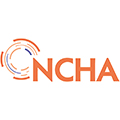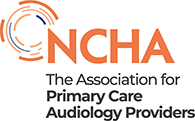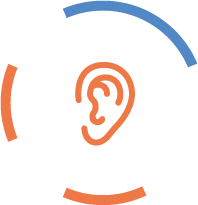03 February 2023
NCHA member update – 3 February
This week:
- Hearing aid sales back to pre-COVID volumes
- Researchers raise concerns about access to wax management
- Research shows people are missing out on hearing checks
- Alzheimer's Research UK supports acting on hearing loss
- HCPC publishes HAD workforce data
- Other sector news
Hearing aid sales back to pre-COVID volumes
The latest BIHIMA data shows that hearing instrument usage is steadily rising, showing that access to hearing care services has improved since the peak of the pandemic.
In 2022, NHS providers across the UK purchased 1,539,546 hearing aids. Independent hearing care providers purchased 434,974 for self-funded care. Comparing 2019 with 2022, hearing aid sales in the independent sector have grown by 26%, whereas NHS sales have remained similar to 2019 figures. In 2022, independent sales accounted for 22% of all hearing aids sold versus 18% in 2019.
In addition to this more patients are accessing NHS audiology from primary care settings, which means more hearing aids than ever before are being fitted closer to home.
Researchers raise concerns about access to wax management
Professor Kevin Munro and his Manchester research team have expressed concern over access to wax management services.
In the survey, 90% of patients attending Trafford Ear Care Service found earwax to be moderately bothersome before removal, with 60% finding it extremely bothersome. Yet a significant number of people were unable to access earwax removal.
With 2.3 million people in the UK suffering with troublesome earwax each year the researchers say a significant number will fail to get the care they need, and there is "an urgent need for such a service in primary care".
Research shows people are missing out on hearing checks
RNID research shows only 6% of people with unmet hearing needs in the UK have had a hearing test in the last 12 months.
RNID said this showed people are missing out on vital hearing health checks. In contrast, people were more likely to have equally essential health check-ups, such as dental (53%), eye tests (46%), and blood pressure (44%).
Despite 98% of respondents saying that their hearing was important to them, many were living for years with undiagnosed hearing problems.
Emily McCabe, hearing health policy officer at the NCHA, said: "This latest survey adds to a body of evidence that people delay acting on hearing loss. We need to do more to raise awareness about the impacts of unaddressed hearing loss and the benefits of early diagnosis and support. We are committed to doing this and we fully support the RNID in its work on this important issue."
Alzheimer's Research UK supports acting on hearing loss
A brain check-up tool Think Brain Health Check-in has been launched by Alzheimer's Research UK. It helps people do more to look after their brain health and reduce their risk of developing dementia, including advising people to get a hearing test. This latest advice is consistent with NICE guidelines, which advise early diagnosis and support for all adults with hearing loss, and that all people with or at risk of dementia see an audiologist.
HCPC publishes HAD workforce data
The HCPC has published a report on registrant retention rates from 2014-2018. HAD data shows that:
- After four years 91.1% of newly qualified HADs remained on the register, making HADs one of the HCPC professions, alongside orthoptists, with the lowest retention rates
- The most marked difference was based on gender, with males having a significantly higher retention rate than females.
Third sector highlights
- RNID calls for changes to Access to Work scheme. Read here.
- British Tinnitus Association relaunches as Tinnitus UK.
- Register your event for World Hearing Day here.
- RNID work to make financial services more accessible. Read here.
- Tinnitus UK announced that CEO Deanne Thomas would step down from the charity.
- RNID has launched its new Employer Insights Report.
Across the pond
The Hearing Journal has launched a four-part podcast, with the final episode covering OTC hearing aids and navigating through industry disruption. Read more.
Medicare has also now expanded coverage for cochlear implant users, which means older adults are now eligible for CIs earlier. Read the full article.

Press enquiries
Media enquiries should be directed to [email protected] or call 020 7298 5110.
We are happy to put you in touch with our expert policy advisers who can comment on a variety of issues.
You can also follow us on Twitter and LinkedIn.

 Your hearing and aural health
Your hearing and aural health  Commissioners and Policymakers
Commissioners and Policymakers  Member support and guidance
Member support and guidance News and views
News and views
 Hearing map
Hearing map
